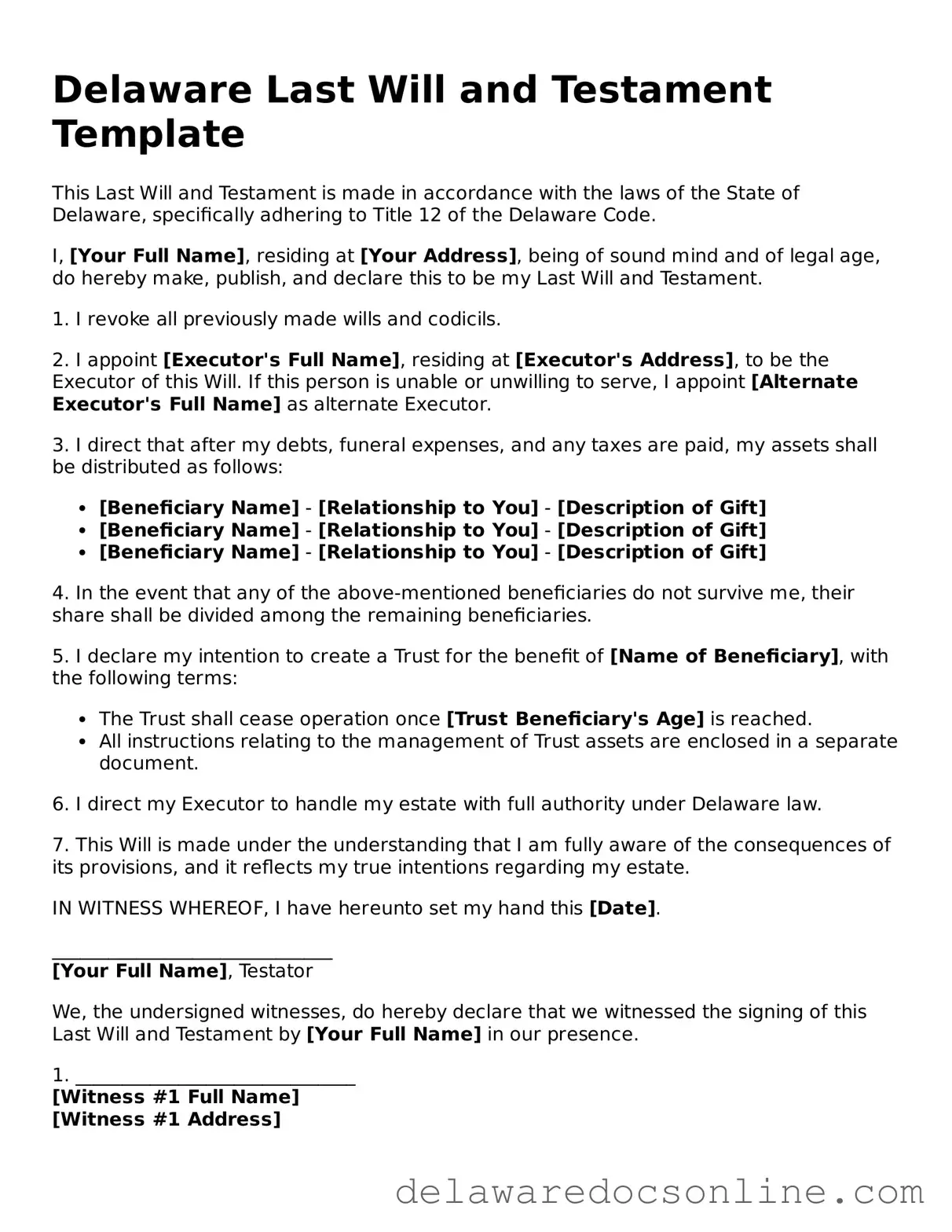Attorney-Verified Last Will and Testament Document for Delaware
A Delaware Last Will and Testament form is a legal document that outlines an individual's wishes regarding the distribution of their assets after death. This form serves to ensure that personal belongings and estate matters are handled according to the deceased's preferences. By properly executing this document, individuals can provide clarity and direction for their loved ones during a difficult time.
Make Your Last Will and Testament Now

Attorney-Verified Last Will and Testament Document for Delaware
Make Your Last Will and Testament Now

Make Your Last Will and Testament Now
or
⇓ PDF File
Need speed? Complete the form now
Edit, save, download — finish Last Will and Testament online with ease.